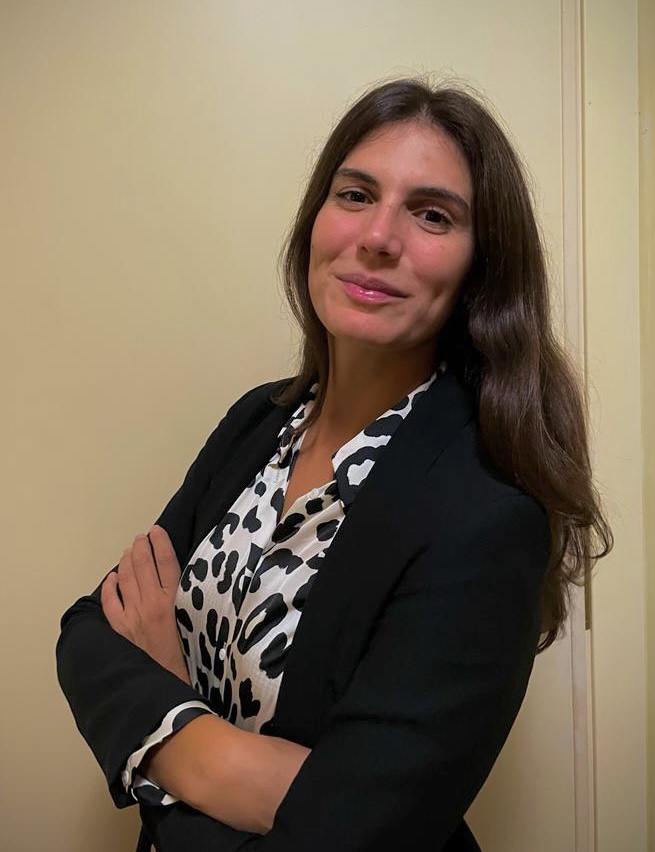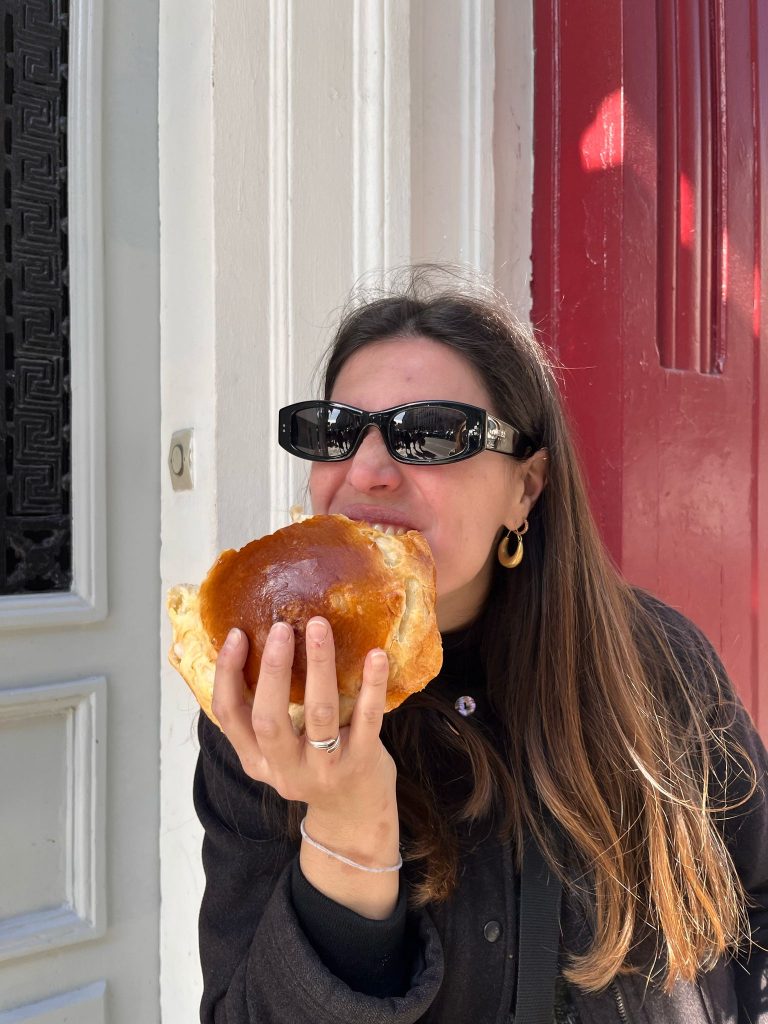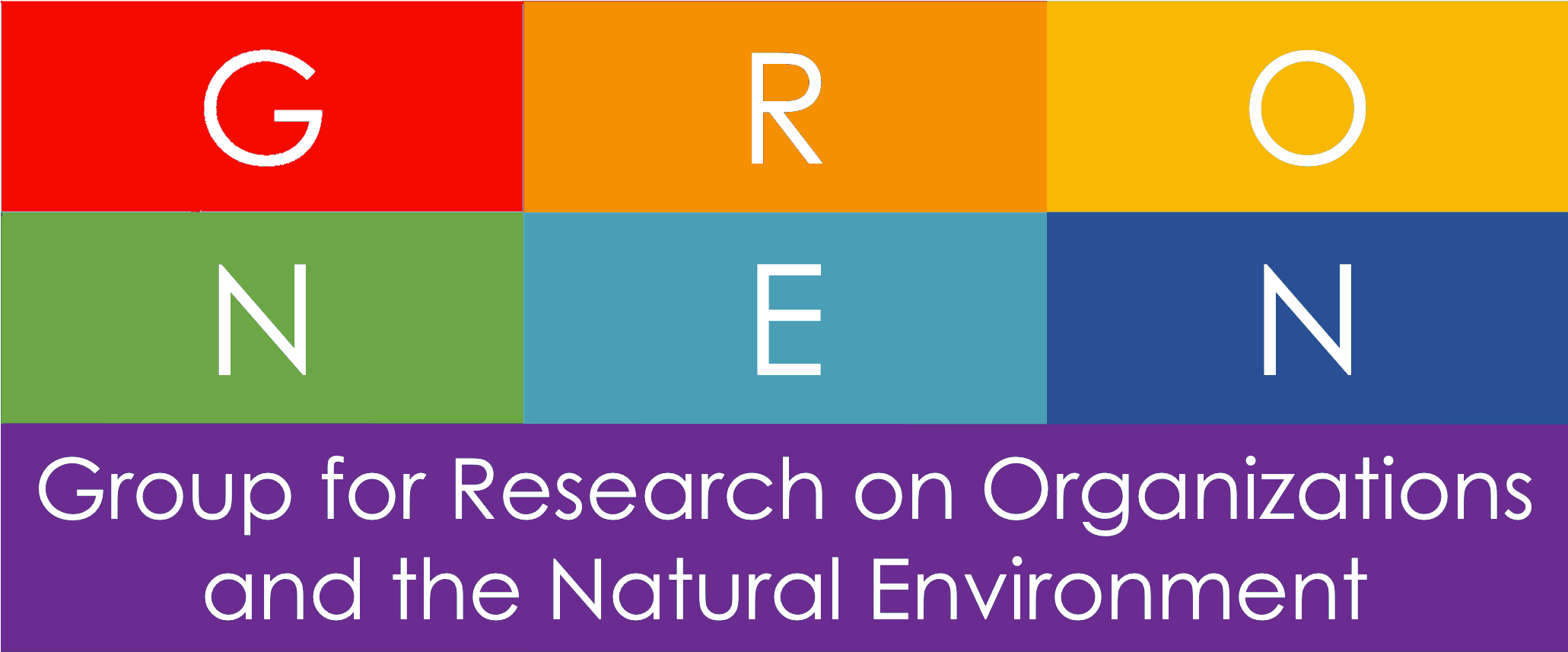
Giulia Valentini is a PhD student in Management Engineering at Politecnico di Milano. Her research focuses on firm-level strategies and tools to reduce food waste and foster circularity in the food industry. More specifically, Giulia’s work lies at the intersection of industrial economics and sustainability, with the goal of enhancing firms’ circular performance and reducing food waste.
Here is Giulia’s story.
What are the top three highlights, professional skills, or other experiences you have had during your time as a PhD student?
- One major highlight has been my visiting period at SKEMA Business School in Paris. The PhD visiting period gives you the opportunity to fully immerse yourself in other institutions, where scholars work and conduct research in ways that are completely different from your own. These collaborations allow you to step out of your “bubble” and discover new perspectives on how to approach research. I ended up learning much more, in much less time because I discovered many things about myself and my way of doing research that I was not aware of, and this also contributed to increase confidence in my research.
- Another highlight of my PhD journey has been my experience teaching the course “Business and Industrial Economics” at Politecnico di Milano. I was responsible for designing and delivering two modules: one on the “Boundaries of the Firm”, where I introduced students to theories and real-world cases on diversification, vertical integration, and inter-firm alliances, and another on “Environmental Resource Management and Environmental Innovation & Policy”. It was an intense experience, as it was my first time engaging so directly with students and being fully responsible for communicating complex content. At first, I was quite nervous and unsure whether I would be up to the task, but it turned out to be incredibly enriching and rewarding. I not only deepened my own understanding of the topics, but also developed valuable skills in structuring content and managing classroom dynamics. One of the most important lessons I learned is that you don’t always need to have all the answers but what matters is knowing how to properly look for them.
- Finally, I think another important highlight that helped me develop valuable professional skills was the opportunity to present my research at international conferences. One of the most meaningful experiences was being invited as a speaker at the Food Science Festival in Mantua, where I had the chance to present my study as an expert. It was a unique opportunity to engage with a broader audience and confirm my research objectives. I received very positive feedback from practitioners that made me realize that my research can have concrete impact beyond academia and offer valuable insights for companies and professionals working on food-related challenges.
What inspired you to pursue a PhD?
During my master’s thesis, I was fortunate to collaborate closely with the Food Sustainability Lab of Politecnico di Milano. That experience sparked my interest in food waste and the broader sustainability of food systems. After graduating, I started working in the corporate sector. I didn’t expect the corporate environment to feel so misaligned with the values I deeply cared about and had started exploring with my project at the Food Sustainability Lab. Inside the company, I witnessed firsthand how large quantities of unsold food still ended up as waste. That experience reinforced what I had already begun to understand during my thesis work: I wanted to focus on sustainability in the food sector, not through corporate strategy, but through research and dissemination activities. With this goal in mind, I returned to my university where I was offered a PhD at the Department of Management Engineering and began research on food waste with a management approach.
How would you summarize your research project in a short title?
Firm-Level Strategies for Food Waste Reduction: An Empirical Analysis of the Italian Food Industry
In brief, what is the empirical method/context you are adopting in your thesis?
To conduct my empirical analysis of the Italian food industry, I use a mixed-methods approach combining both qualitative and quantitative techniques. One paper applies fuzzy-set Qualitative Comparative Analysis (fsQCA); a second involves coding and analyzing interviews from several case studies; the third leverages econometric modeling and statistical analysis. This combination allows me to explore the complexity of food waste reduction strategies from multiple angles.
Can you describe a “eureka moment” you might have had during your PhD?
A key “eureka moment” happened during a conference when a professor, acting as a reviewer for my paper, became genuinely interested in my topic. He suggested a theoretical lens that helped me finally resolve a framing issue I had been struggling with for over a year. It was a major turning point for me, not just because it unblocked my research, but also because it showed me how conferences can be fertile ground for meaningful scholarly exchange and growth in a completely genuine way.
What three tips would you offer to new PhD students in your field?
- Take full advantage of the early phase dedicated to literature review. I know it might feel tedious, but it’s a goldmine for your future research.
- Identify academic communities that align with your research values as soon as possible. Feeling part of something larger helps you stay motivated and grounded.
- Keep moving forward, even when you feel unsure. Often, you just need to start somewhere. Clarity tends to emerge only by taking things step by step.

What side projects, communities, or other initiatives are you involved with?
Beyond my doctoral research, I coordinate the national research project “OnFoods,” funded under Italy’s PNRR program, which also supports my PhD. I’m also involved in a three-year collaboration with Fondazione Banco Alimentare, a project aimed at collecting data and analyzing food surpluses and food waste at various stages of the Italian food supply chain. Additionally, I’m working with the Municipality of Milan on the project “Neighborhood Hubs Against Food Waste,” which seeks to systematize surplus food redistribution for social purposes in urban contexts.
What hobbies or interests do you enjoy outside of work?
I’m a very active person who loves to make the most out of my free time. After work, I usually go to the gym, meet friends, go to the cinema, or attend cultural events. I love to travel and weekends are my chance to escape the city and discover new places, whether it’s a day trip or a longer getaway. My biggest passion, though, is food, not so much cooking it, but definitely eating it and discovering new flavors and culinary experiences!
In one or two sentences, what does the GRONEN community mean to you?
GRONEN has been one of the most important discoveries of my academic path. In my second year, I still hadn’t found a scholarly community I truly identified with but then I attended the GRONEN conference in Paris. There, I finally connected with researchers who shared my interdisciplinary approach to sustainability and management. Through GRONEN, I even found the opportunity to do my visiting period at SKEMA. To me, GRONEN represents both a professional identity and a world of opportunities like the chance to share my PhD story here.
What’s next for you?
Right now, I’m focused on producing strong research outputs and submitting my papers to high-quality journals. I want to complete my PhD in the best possible way. As I approach the final stages of this pathway, I plan to keep an open mind about opportunities, whether they’re within my university or beyond my current institution.
Contact
You can contact me via email at giulia.valentini@polimi.it or connect on Linkedin.

Karelia Dagnaud is a doctoral candidate at the Aalto University School of Business, in Finland. In her research, she explores how researchers and business practitioners learn and organize for sustainability, specifically in the textile sector context.
